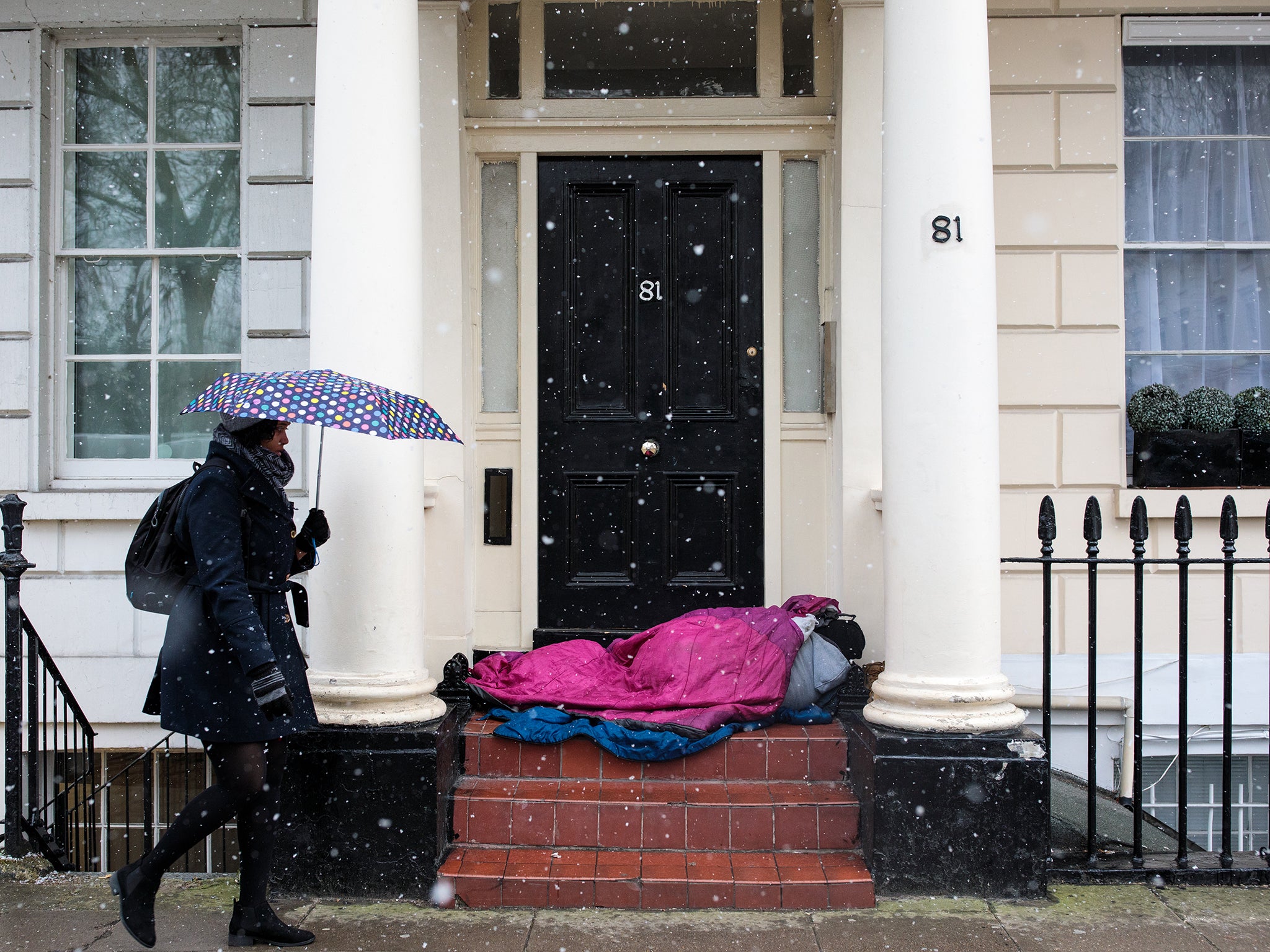The Homeless Fund: LGBT+ young people forced out of their homes find reconciliation with parents thanks to our appeal
Many forced to sofa-surf or engage in ‘survival sex’ to find somewhere to stay

Your support helps us to tell the story
From reproductive rights to climate change to Big Tech, The Independent is on the ground when the story is developing. Whether it's investigating the financials of Elon Musk's pro-Trump PAC or producing our latest documentary, 'The A Word', which shines a light on the American women fighting for reproductive rights, we know how important it is to parse out the facts from the messaging.
At such a critical moment in US history, we need reporters on the ground. Your donation allows us to keep sending journalists to speak to both sides of the story.
The Independent is trusted by Americans across the entire political spectrum. And unlike many other quality news outlets, we choose not to lock Americans out of our reporting and analysis with paywalls. We believe quality journalism should be available to everyone, paid for by those who can afford it.
Your support makes all the difference.Transgender and gay teenagers forced out of home are being reconciled with their families thanks to mediation by a London charity backed by The Independent.
Albert Kennedy Trust works with LGBT+ 16- to 25-year-olds, many living in “hostile environments” because of their sexuality or their gender identity. Some 27 per cent are trans.
The trust – whose patrons include actor Sir Ian McKellen – is a member of the London Homeless Collective, a group of charities with which The Independent has partnered as part of our drive towards ending rough sleeping in London and addressing the issues that cause homelessness.
Its case workers try to reunite families by helping parents empathise with their children in mediation sessions.
“Hostile environments” can include insisting on using a young trans person’s “dead name” – the identity ditched after transitioning – or making homophobic remarks, the trust said. There are also reports of young people being banned from using cutlery and crockery or being told to shower last.
Nathan East, a case worker for the Hackney-based charity, said: “A young person I saw was saying after they came out and went into communal areas … the family would just stop speaking, wouldn’t acknowledge them or communicate with them.”
With no food or funds, and ostracised from loved ones, they are forced to sofa-surf, sleep rough, or even use “hook-up” apps to seek “survival sex” that gives them somewhere to stay.
Mr East said this can lead to dangerous situations, particularly if drugs are involved.
In extreme cases, teenagers contacted case workers on WhatsApp to say they had been taken to churches, told to wear ceremonial robes and forced to undergo an exorcism in a bid to banish their sexuality or gender identity.
Mr East said: “I’ve had young people who say … when they’re touched on the head they fall down, saying it was ‘just a bit easier to go along with it’. You think you live in London in a city that’s so dynamic and so open, but these are things happening a few streets away.”
AKT helps with practicalities such as food vouchers and getting a bed in a refuge, which can be particularly sensitive for trans people. It also holds movie and pizza nights, and trips to museums or shows, places where they feel safe to hold hands in public with a partner.
Mr East added: “We had one mum … her daughter had come out, she was sleeping rough in parks and carparks. Mum didn’t accept her sexuality, and said she couldn’t live there [at home].
“We had a conversation with mum, and said, ‘This is your daughter – we’re going to be here for her as well, to support her and support you, but she’s putting herself in some really dangerous and vulnerable positions.’ We had a really open conversation.
“Mum was pretty angry … but then she got it, and was more understanding. Now she [the daughter] is back home.”
Join our commenting forum
Join thought-provoking conversations, follow other Independent readers and see their replies
Comments